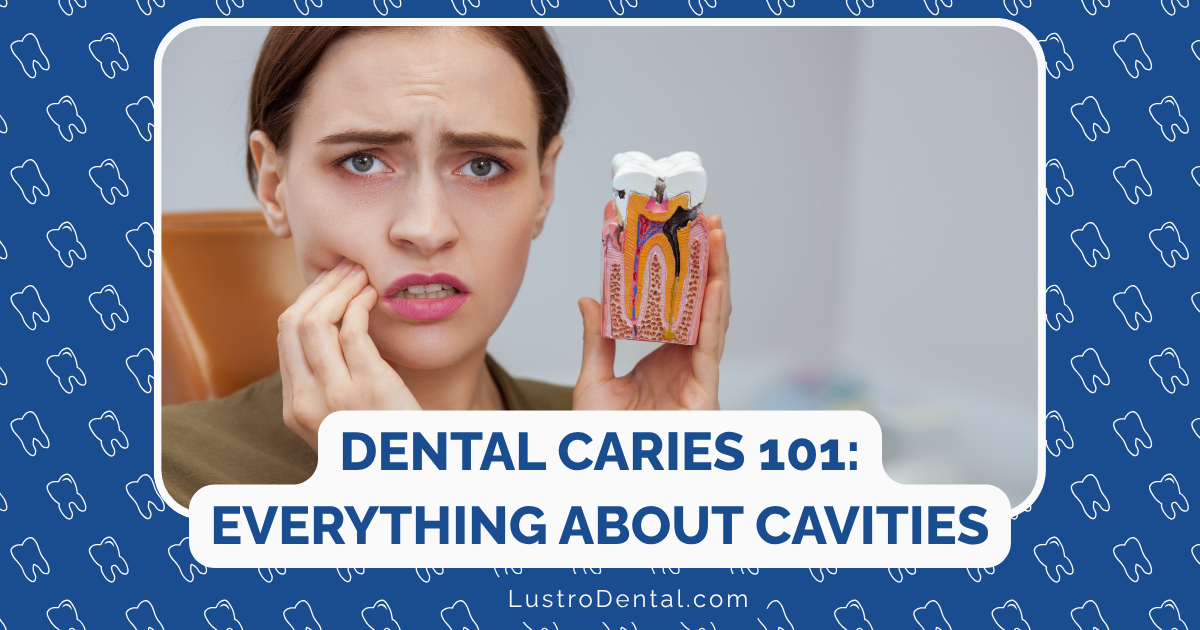The Emotional Impact of Bad Breath: Breaking the Stigma and Finding Solutions

Have you ever caught someone subtly stepping back during a conversation, offering you gum “for no reason,” or noticed people consistently maintaining an unusual distance when speaking with you? These seemingly small interactions can trigger a cascade of self-doubt and anxiety if you suspect bad breath might be the culprit.
Bad breath, or halitosis, affects millions of people worldwide. While often discussed in clinical terms or as the punchline of jokes in commercials, the emotional and psychological impact of persistent bad breath is profound and frequently overlooked. Beyond the physical discomfort, halitosis can significantly affect self-esteem, social interactions, relationships, and even career opportunities.
In this comprehensive guide, we’ll explore the emotional toll of bad breath, break down the stigma surrounding this common condition, and provide effective solutions—both traditional and innovative—to help you reclaim your confidence and quality of life.
The Hidden Emotional Burden of Halitosis
The psychological impact of bad breath extends far beyond momentary embarrassment. Research published in the Journal of Oral Rehabilitation reveals that individuals with chronic halitosis often experience:
Anxiety and Hypervigilance
Many people with bad breath develop a constant state of anxiety about their condition, leading to:
- Obsessive checking of breath freshness
- Excessive use of mints, gums, and mouthwashes
- Constant worry about others’ perceptions
- Physical symptoms of anxiety when speaking with others
Diminished Self-Esteem
The persistent fear of offending others with your breath can dramatically erode self-confidence:
- Feelings of shame and embarrassment
- Negative self-perception and self-talk
- Diminished sense of attractiveness
- Belief that the condition defines your identity
Social Isolation
Perhaps most concerning is the tendency for those with halitosis to withdraw from social situations:
- Avoiding close conversations
- Declining social invitations
- Speaking less in group settings
- Creating physical distance during interactions
One study participant described their experience: “I became the person who always stands a little too far away during conversations. People probably thought I was standoffish, but I was just terrified they would smell my breath.”
This invisible emotional burden often goes unacknowledged, even by healthcare providers who may focus solely on the clinical aspects of the condition rather than its psychological impact.
How Bad Breath Affects Social Interactions
The social consequences of halitosis extend into virtually every interpersonal encounter, creating a ripple effect that can significantly diminish quality of life.
The Communication Barrier
Effective communication requires a certain physical proximity that those with bad breath often avoid:
- Speaking from an unnatural distance
- Covering the mouth while talking
- Turning the head away during conversations
- Avoiding laughter or enthusiastic speech
The Misinterpretation of Signals
When someone maintains distance or seems reserved due to concerns about their breath, others may misinterpret these behaviors as:
- Aloofness or arrogance
- Lack of interest in the conversation
- Social awkwardness
- Dislike of the other person
The Friendship Impact
Establishing and maintaining friendships becomes particularly challenging:
- Difficulty forming initial connections
- Reluctance to participate in social dining
- Avoidance of intimate conversations
- Constant fear of being “the friend with bad breath”
A survey conducted by the International Society for Breath Odor Research found that 75% of respondents with self-reported halitosis had declined social invitations specifically due to concerns about their breath, demonstrating how this condition directly impacts social engagement.
The Impact on Romantic Relationships
Few areas of life are as affected by halitosis as romantic relationships, where physical closeness and intimacy are central components.
Dating Challenges
The dating process becomes fraught with additional anxiety:
- Fear of first kisses or close conversation
- Elaborate pre-date rituals to ensure fresh breath
- Avoidance of romantic dining situations
- Premature ending of promising connections due to breath concerns
Existing Relationships
Even established relationships can suffer:
- Decreased physical intimacy
- Communication barriers about the issue
- Feelings of rejection if a partner mentions the problem
- Resentment if the condition goes unaddressed
One relationship counselor noted: “I’ve seen couples where one partner’s untreated halitosis created more distance than a long-distance relationship. The physical proximity was there, but the emotional and physical intimacy was compromised by unaddressed breath concerns.”
The intimate nature of romantic relationships makes halitosis particularly impactful in this context, often becoming an unspoken source of tension that neither partner knows how to address constructively.
Professional Consequences of Halitosis
The workplace presents unique challenges for those with bad breath, potentially affecting career advancement and professional relationships.
Career Limitations
Research indicates that halitosis can impact professional growth:
- Reduced likelihood of being selected for client-facing roles
- Hesitancy to speak up in meetings or presentations
- Missed networking opportunities due to conversation avoidance
- Negative performance evaluations related to “interpersonal skills”
Workplace Perceptions
Colleagues may form inaccurate impressions based on behaviors stemming from halitosis concerns:
- Perceptions of being unfriendly or antisocial
- Assumptions about poor personal hygiene
- Misinterpretation of distance as arrogance
- Exclusion from informal workplace social circles
A study published in the Journal of Applied Psychology found that individuals with noticeable oral health issues, including bad breath, were rated as less suitable for leadership positions and customer-facing roles, regardless of their qualifications.
The professional impact extends beyond mere social discomfort, potentially affecting economic opportunities and career trajectory.
Understanding the Mind-Body Connection
The relationship between halitosis and psychological well-being is bidirectional, creating a cycle that can be difficult to break.
How Stress Affects Breath
Psychological stress can directly contribute to bad breath through several mechanisms:
- Reduced saliva production (dry mouth)
- Increased cortisol affecting oral bacteria balance
- Stress-related digestive issues
- Neglect of oral hygiene during high-stress periods
The Anxiety Cycle
A particularly challenging aspect is the self-perpetuating cycle:
- Concern about bad breath creates anxiety
- Anxiety contributes to dry mouth and physiological changes
- These changes can worsen halitosis
- Worsened symptoms increase anxiety
- The cycle continues
Research from the American Psychological Association indicates that breaking this cycle often requires addressing both the psychological and physiological aspects simultaneously.
Understanding this connection helps explain why purely clinical approaches sometimes fall short—they address the physical symptoms without considering the psychological components that may be contributing to or resulting from the condition.
Breaking the Stigma: Why We Need to Talk About It
Despite its prevalence and impact, halitosis remains shrouded in stigma and embarrassment, preventing open discussion and timely intervention.
The Communication Paradox
One of the cruelest aspects of halitosis is that those affected are often the last to know:
- Friends and family are reluctant to mention it
- Colleagues typically avoid the subject
- Even healthcare providers may hesitate to address it directly
- The affected person may be unaware of the issue
Cultural Factors
Cultural attitudes toward discussing personal hygiene vary widely:
- Some cultures consider direct mention of such issues deeply offensive
- Others view it as a necessary kindness to inform someone
- Medical contexts may normalize the discussion in some cultures
- Family dynamics influence whether the topic is addressed
Moving Toward Openness
Breaking the stigma requires a shift in how we approach the subject:
- Recognizing bad breath as a health condition, not a character flaw
- Creating safe spaces for compassionate communication
- Developing more sensitive ways to address the issue
- Encouraging medical professionals to discuss psychological impacts
Dr. Harold Katz, founder of the California Breath Clinics, notes: “The silence around halitosis does a tremendous disservice to those suffering from it. We need to normalize these conversations just as we’ve done with other health conditions.”
By bringing this issue into the open, we can reduce the shame associated with halitosis and encourage earlier intervention, potentially preventing years of unnecessary social and emotional suffering.
The Science Behind Bad Breath
Understanding the causes of halitosis is essential for addressing both its physical and emotional aspects effectively.
Common Causes of Bad Breath
Halitosis typically stems from one or more of these factors:
Oral Bacteria
The most common cause is the presence of certain bacteria in the mouth that produce volatile sulfur compounds (VSCs):
- These bacteria thrive in low-oxygen environments
- They break down protein, releasing sulfur compounds
- The back of the tongue is a primary habitat
- Dental plaque harbors these bacteria
Oral Health Conditions
Several dental issues contribute to bad breath:
- Gum disease (gingivitis and periodontitis)
- Tooth decay and infections
- Poor-fitting dental appliances
- Oral infections or abscesses
Systemic Conditions
Sometimes bad breath originates beyond the mouth:
- Digestive disorders
- Respiratory infections
- Diabetes
- Liver or kidney disease
- Certain medications
Lifestyle Factors
Daily habits can significantly impact breath freshness:
- Tobacco use
- Alcohol consumption
- Certain foods (garlic, onions, spicy foods)
- Fasting or low-carb diets
- Dehydration
The Oral Microbiome Connection
Recent scientific advances have highlighted the importance of the oral microbiome—the community of microorganisms living in your mouth—in determining breath freshness.
A healthy oral microbiome maintains a balance between beneficial and potentially harmful bacteria. When this balance is disrupted (a condition called dysbiosis), bacteria that produce odor-causing compounds can flourish.
Research published in the Journal of Clinical Periodontology shows that approaches targeting microbiome balance, rather than simply killing all bacteria, may offer more sustainable solutions for halitosis.
Understanding these scientific foundations helps explain why some traditional approaches to bad breath provide only temporary relief, while others address the root causes more effectively.
Comprehensive Solutions for Fresher Breath
Effectively addressing halitosis requires a multi-faceted approach that considers both the physical and emotional aspects of the condition.
Traditional Approaches
Improved Oral Hygiene
The foundation of fresh breath starts with proper oral care:
- Brushing twice daily with fluoride toothpaste
- Daily flossing or interdental cleaning
- Tongue cleaning to remove bacteria
- Regular dental check-ups and professional cleanings
Hydration and Diet
Simple lifestyle adjustments can make a significant difference:
- Drinking plenty of water throughout the day
- Limiting alcohol and caffeine, which can cause dry mouth
- Reducing consumption of strong-smelling foods
- Eating fibrous fruits and vegetables that help clean teeth
Temporary Fresheners
For immediate situations, these can provide short-term relief:
- Sugar-free mints and gum (preferably with xylitol)
- Alcohol-free mouthwashes
- Breath sprays
- Drinking water after meals
Addressing Psychological Aspects
Cognitive Behavioral Approaches
Working with the mental component is equally important:
- Challenging catastrophic thinking about social consequences
- Developing realistic perspectives on others’ perceptions
- Creating coping strategies for social situations
- Building confidence beyond breath concerns
Communication Strategies
Learning to discuss the issue can reduce its emotional impact:
- Practicing open communication with trusted friends or partners
- Developing comfort with seeking professional help
- Finding supportive communities or forums
- Separating self-worth from the condition
Innovative Solutions
The Oral Microbiome Approach
One of the most promising developments in halitosis treatment focuses on restoring balance to the oral microbiome rather than simply masking odors or killing all bacteria indiscriminately.
This approach recognizes that a healthy mouth contains hundreds of bacterial species in a delicate balance. When beneficial bacteria thrive, they help control the growth of odor-producing bacteria naturally.
The Role of Oral Probiotics in Addressing Halitosis
Oral probiotics represent a cutting-edge approach to bad breath that addresses the root cause while supporting overall oral health.
How Oral Probiotics Work
Unlike traditional treatments that often take a “scorched earth” approach to bacteria, oral probiotics introduce beneficial bacterial strains that:
- Compete with odor-causing bacteria for space and resources
- Produce compounds that inhibit harmful bacteria
- Help maintain a balanced pH in the mouth
- Support healthy gum tissue
ProDentim: A Targeted Solution
ProDentim is an innovative oral probiotic supplement specifically designed to support oral microbiome health. Each tablet contains 3.5 billion CFUs (colony-forming units) of beneficial bacteria, including strains specifically selected for their ability to address halitosis:
- Lactobacillus paracasei: Helps inhibit the growth of bacteria that produce volatile sulfur compounds
- Lactobacillus reuteri: Supports gum health and reduces inflammation
- Bifidobacterium lactis BL-04: Helps maintain a balanced oral microbiome
The formula also includes supporting ingredients like inulin (a prebiotic that feeds beneficial bacteria) and peppermint (for immediate breath freshening), creating a comprehensive approach to breath concerns.
Real-World Benefits
Users of ProDentim often report benefits that extend beyond fresher breath:
- Confidence in close conversations: “I no longer worry about keeping my distance when speaking with colleagues.”
- Reduced anxiety about breath: “The constant worry about my breath has diminished significantly.”
- Less reliance on temporary solutions: “I don’t feel the need to constantly use mints and gums throughout the day.”
- Improved social engagement: “I’ve started accepting dinner invitations again without anxiety.”
The psychological benefits of addressing halitosis at its source rather than constantly managing symptoms can be transformative for those who have struggled with the emotional burden of bad breath.
By supporting a healthy oral microbiome daily with ProDentim, many users find they can break the cycle of anxiety and avoidance that has impacted their quality of life, allowing them to engage more fully in both personal and professional relationships.
When to Seek Professional Help
While self-care strategies and products like ProDentim can address many cases of halitosis, certain situations warrant professional evaluation.
When to See a Dentist
Consult a dental professional if:
- Bad breath persists despite improved oral hygiene
- You notice red, swollen, or bleeding gums
- You have tooth pain or loose teeth
- You experience persistent dry mouth
- It’s been more than six months since your last dental check-up
When to See a Physician
Consider medical evaluation if:
- Halitosis is accompanied by other symptoms like digestive issues
- You take medications known to cause dry mouth
- You have chronic conditions like diabetes or respiratory problems
- Your dentist has ruled out oral causes
- The odor has a distinctive character (fruity, ammonia-like, etc.)
Specialized Halitosis Clinics
For persistent cases, specialized treatment centers offer:
- Comprehensive evaluation of causes
- Advanced testing for volatile sulfur compounds
- Customized treatment protocols
- Psychological support for the emotional aspects
The American Academy of Oral Medicine can provide referrals to specialists who address both the physical and psychological aspects of chronic halitosis.
Supporting Someone with Halitosis
If someone you care about is affected by bad breath, your approach can significantly impact both their oral health and emotional well-being.
Compassionate Communication
If you need to address the issue:
- Choose a private moment for the conversation
- Use “I” statements rather than accusatory language
- Focus on health concerns rather than social embarrassment
- Offer specific, constructive suggestions
For example: “I’ve noticed you seem concerned about your breath lately, and I wanted to share some information about solutions that might help. Many people find relief with approaches like ProDentim that address the root causes.”
Practical Support
Beyond communication, you can:
- Share information about causes and solutions
- Accompany them to dental appointments if desired
- Help research specialists if needed
- Normalize the condition by discussing its prevalence
Emotional Validation
Perhaps most importantly:
- Acknowledge the emotional impact of their experience
- Reassure them that the condition doesn’t define them
- Maintain the same level of closeness and interaction
- Celebrate their steps toward addressing the issue
Your support can make a tremendous difference in helping someone overcome both the physical condition and its emotional consequences.
Conclusion: Reclaiming Your Confidence
The emotional impact of halitosis extends far beyond momentary embarrassment, affecting how we interact with the world and how we perceive ourselves. By understanding both the physical and psychological aspects of this condition, we can approach it with compassion and effective solutions.
Breaking the stigma surrounding bad breath is essential for allowing those affected to seek help without shame. By recognizing halitosis as a health condition rather than a personal failing, we create space for open discussion and earlier intervention.
A comprehensive approach to fresh breath includes:
- Addressing oral hygiene fundamentals with proper brushing, flossing, and tongue cleaning
- Supporting the oral microbiome with products like ProDentim that restore bacterial balance
- Managing contributing factors such as hydration, diet, and stress
- Seeking professional help when needed for underlying conditions
- Developing psychological resilience to break the cycle of anxiety and avoidance
Remember that your breath does not define your worth, your attractiveness, or your potential for meaningful connections. With the right approaches, halitosis is a manageable condition that need not limit your social, romantic, or professional life.
By taking proactive steps—including daily support for your oral microbiome with ProDentim—you can address both the physical and emotional aspects of bad breath, reclaiming your confidence and engaging fully in life’s important conversations.
Have you experienced the emotional impact of halitosis? What strategies have helped you overcome both the physical and psychological aspects? Share your experience in the comments below to help others on their journey.







